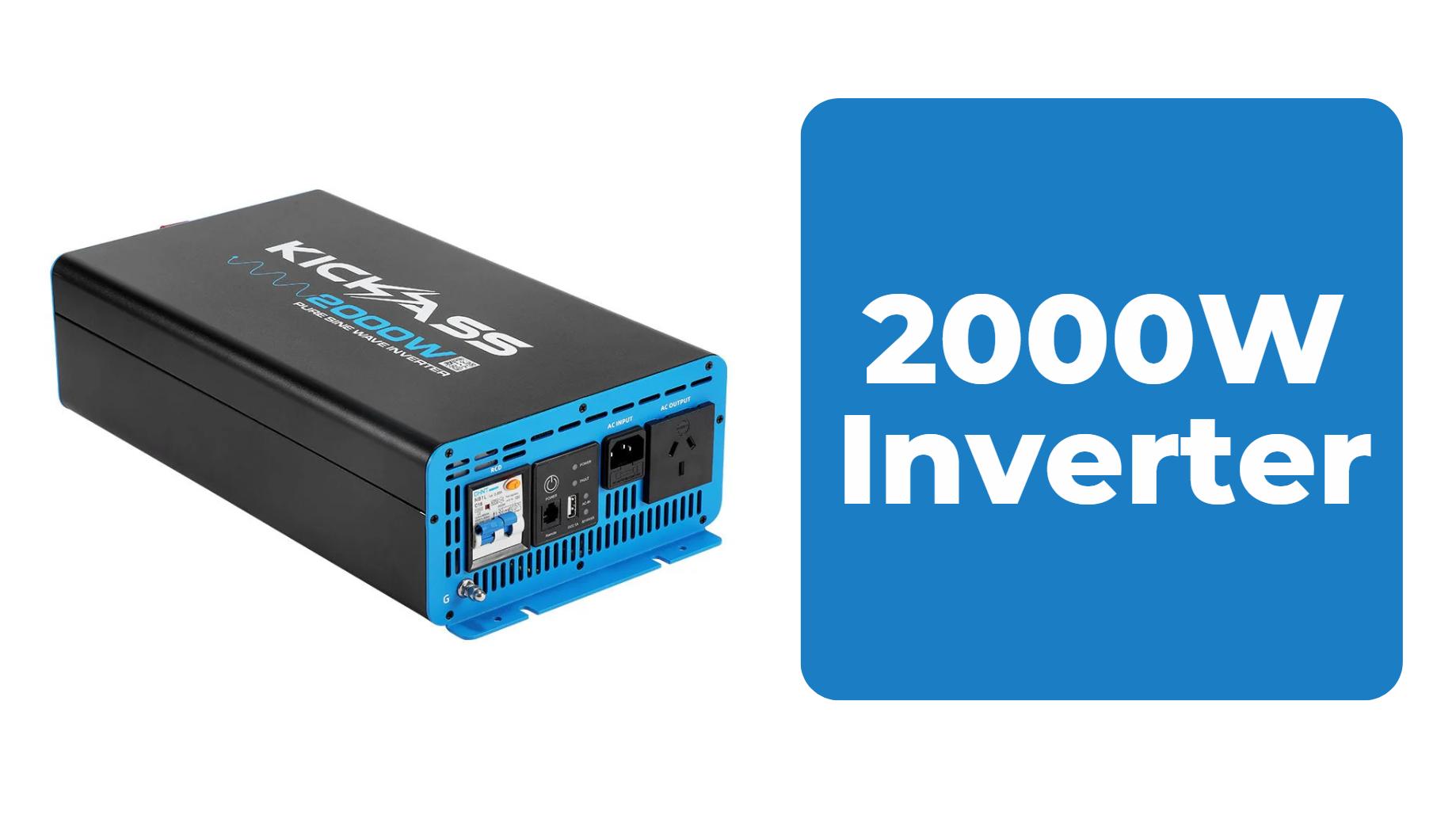When selecting the appropriate battery for a 2000 watt inverter, understanding your power requirements is crucial. This detailed guide will help you determine the optimal battery size to ensure efficient performance and reliability. Whether you are setting up a solar power system, a backup power supply, or any other application requiring a 2000W inverter, this article will provide comprehensive insights to aid in your decision-making process.
For a 2000 watt inverter, you’ll need a battery size based on your voltage. For instance, using a 12V battery, you’ll require about 166.67 Ah to run it for one hour. If you want longer usage, multiply this by the number of hours you need. Don’t forget to account for efficiency losses!
1. Understanding the Power Requirements
A 2000 watt inverter is designed to convert DC power into AC power at a maximum output of 2000 watts. To ensure that the inverter operates efficiently and reliably, the battery you choose must be capable of meeting the inverter’s power demands. The key parameters to consider include capacity, voltage, discharge rate, and the overall quality of the battery.
2. Battery Capacity: Why It Matters
Battery capacity, measured in ampere-hours (Ah), is a critical factor when selecting a battery for a 2000W inverter. The capacity indicates how much energy the battery can store and deliver over time. For a 2000W inverter, we recommend a battery with a minimum capacity of 200 ampere-hours (Ah). This recommendation is based on the need to support the inverter’s power output while also ensuring sufficient run time for your devices.
To calculate the necessary battery capacity, you can use the following formula:
Battery Capacity (Ah)=Inverter Power (W)×Usage Time (h)Battery Voltage (V)\text{Battery Capacity (Ah)} = \frac{\text{Inverter Power (W)} \times \text{Usage Time (h)}}{\text{Battery Voltage (V)}}
For instance, if you are using a 2000W inverter and plan to run it for 2 hours, with a 12V battery, the required capacity would be:
Battery Capacity=2000W×2h12V≈333Ah\text{Battery Capacity} = \frac{2000 \text{W} \times 2 \text{h}}{12 \text{V}} \approx 333 \text{Ah}
3. Selecting the Right Battery Voltage
The voltage of the battery should match the inverter’s requirements. Common battery voltages include 12V, 24V, and 48V. For a 2000W inverter, you may choose between these voltages depending on the specific configuration of your power system. Higher voltage batteries generally offer better efficiency and can reduce the size and cost of the cabling needed.
4. The Importance of Discharge Rate
The discharge rate, or the C-rate, defines how quickly a battery can deliver its stored energy. For a 2000W inverter, it is crucial to select a battery with a high discharge rate to ensure it can handle the load without performance degradation. Lithium-ion batteries are highly recommended due to their superior discharge rates compared to lead-acid batteries.
5. Battery Types: Lithium-Ion vs. Lead-Acid
When choosing a battery for a 2000W inverter, the type of battery plays a significant role:
- Lithium-Ion Batteries: These are known for their high energy density, longer lifespan, and superior discharge rates. They are a top choice for high-performance applications and offer better overall efficiency and lower maintenance compared to lead-acid batteries. Redway Battery, with its extensive experience in manufacturing 72V LiFePO4 batteries, provides high-quality lithium-ion solutions tailored for various needs.
- Lead-Acid Batteries: While generally more affordable, lead-acid batteries have a lower energy density and shorter lifespan. They may require more maintenance and have a slower discharge rate compared to lithium-ion batteries.
6. Importance of a Reliable Battery Management System (BMS)
A Battery Management System (BMS) is crucial for the safe and efficient operation of lithium-ion batteries. It monitors the battery’s health, manages charging and discharging processes, and ensures the battery operates within safe limits. When selecting a battery, ensure it includes a reliable BMS to enhance safety and longevity.
7. Installation and Maintenance Considerations
Proper installation and regular maintenance are essential to maximize the lifespan and performance of your battery. Ensure that the battery is installed according to the manufacturer’s guidelines, and perform routine checks to maintain optimal performance. Regular maintenance helps prevent issues such as overcharging, deep discharging, and thermal runaway, which can adversely affect battery life and efficiency.
8. Choosing Redway Battery for Your Power Needs
For those seeking a high-quality battery for a 2000W inverter, Redway Battery stands out as a reliable partner. With extensive experience in manufacturing and supplying 72V LiFePO4 batteries, Redway Battery offers comprehensive solutions tailored to high-drain applications and everyday use. Their commitment to excellence ensures that clients receive tailored solutions, including custom golf cart batteries and other specialized power solutions.
9. Getting a Personalized Quote
To find the ideal battery for your 2000W inverter, we recommend reaching out to Redway Battery for a personalized quote. Their team of experts can provide valuable advice and help you choose the perfect battery based on your specific requirements.
Understanding Inverter Sizes: A Guide to Making the Right Choice
10. Conclusion
Selecting the right battery for a 2000 watt inverter involves considering factors such as battery capacity, voltage, discharge rate, and type. By choosing a high-capacity battery with a reliable BMS and ensuring proper installation and maintenance, you can ensure your inverter performs efficiently and reliably. For premium battery solutions and expert advice, Redway Battery offers unparalleled quality and support.






